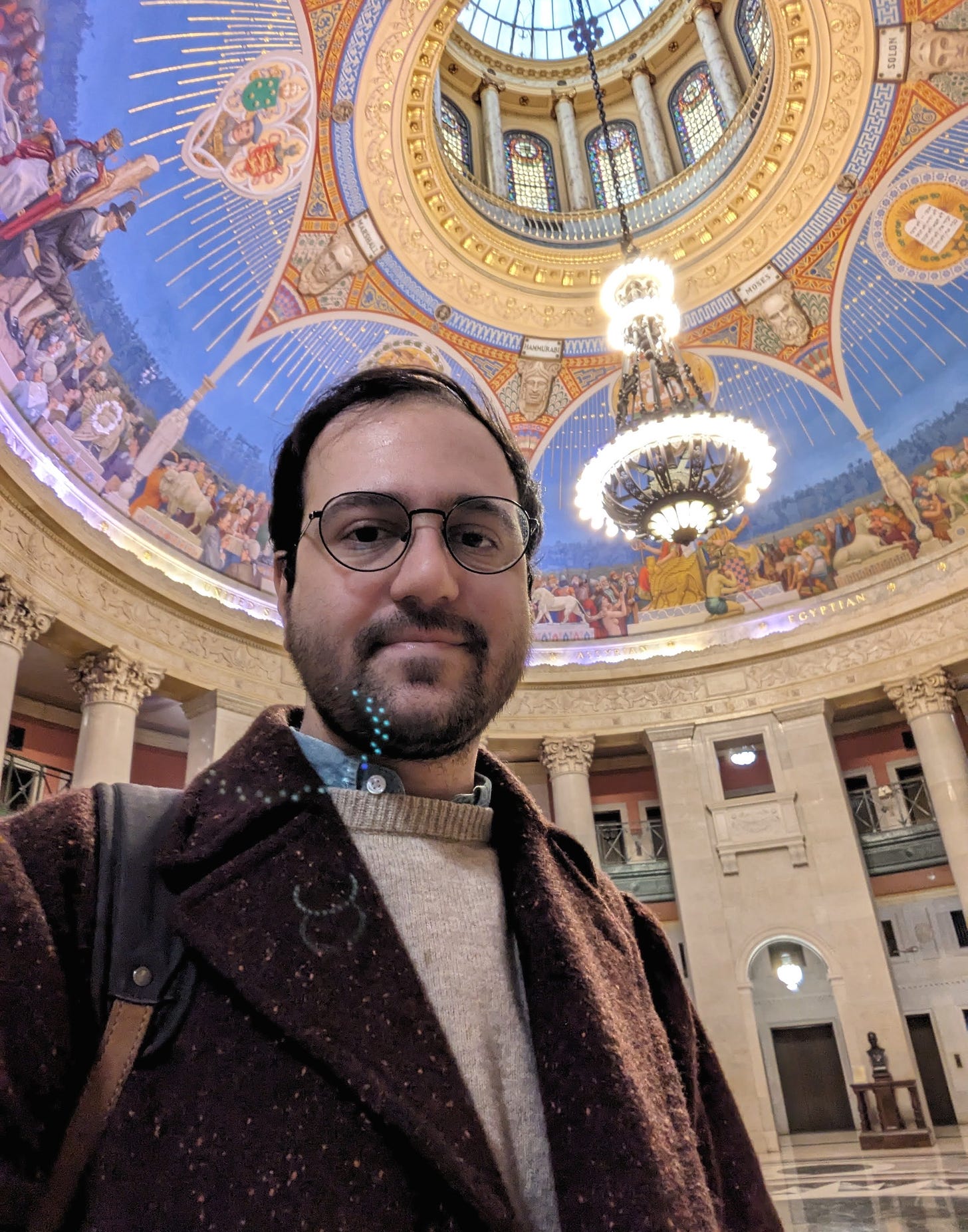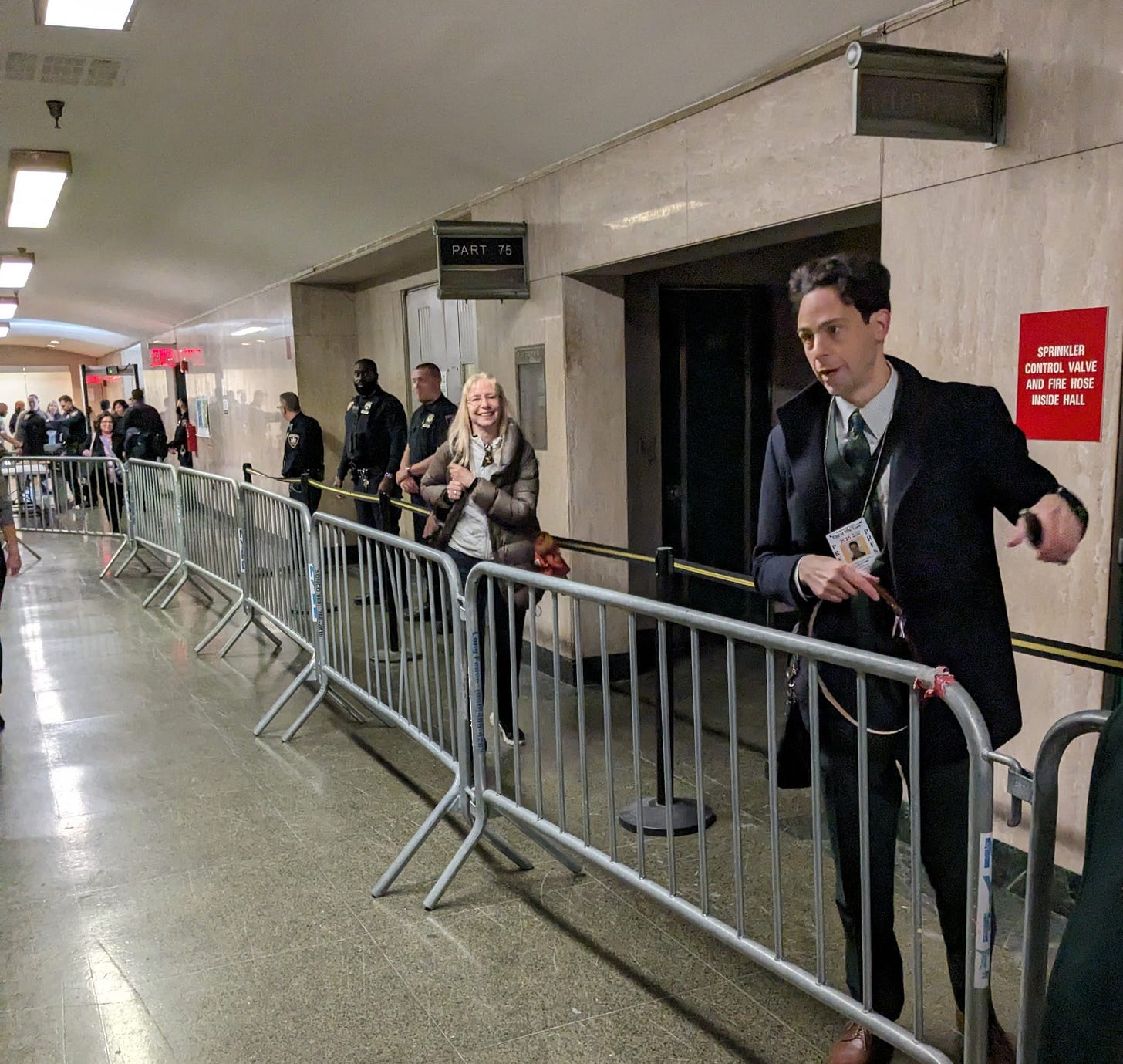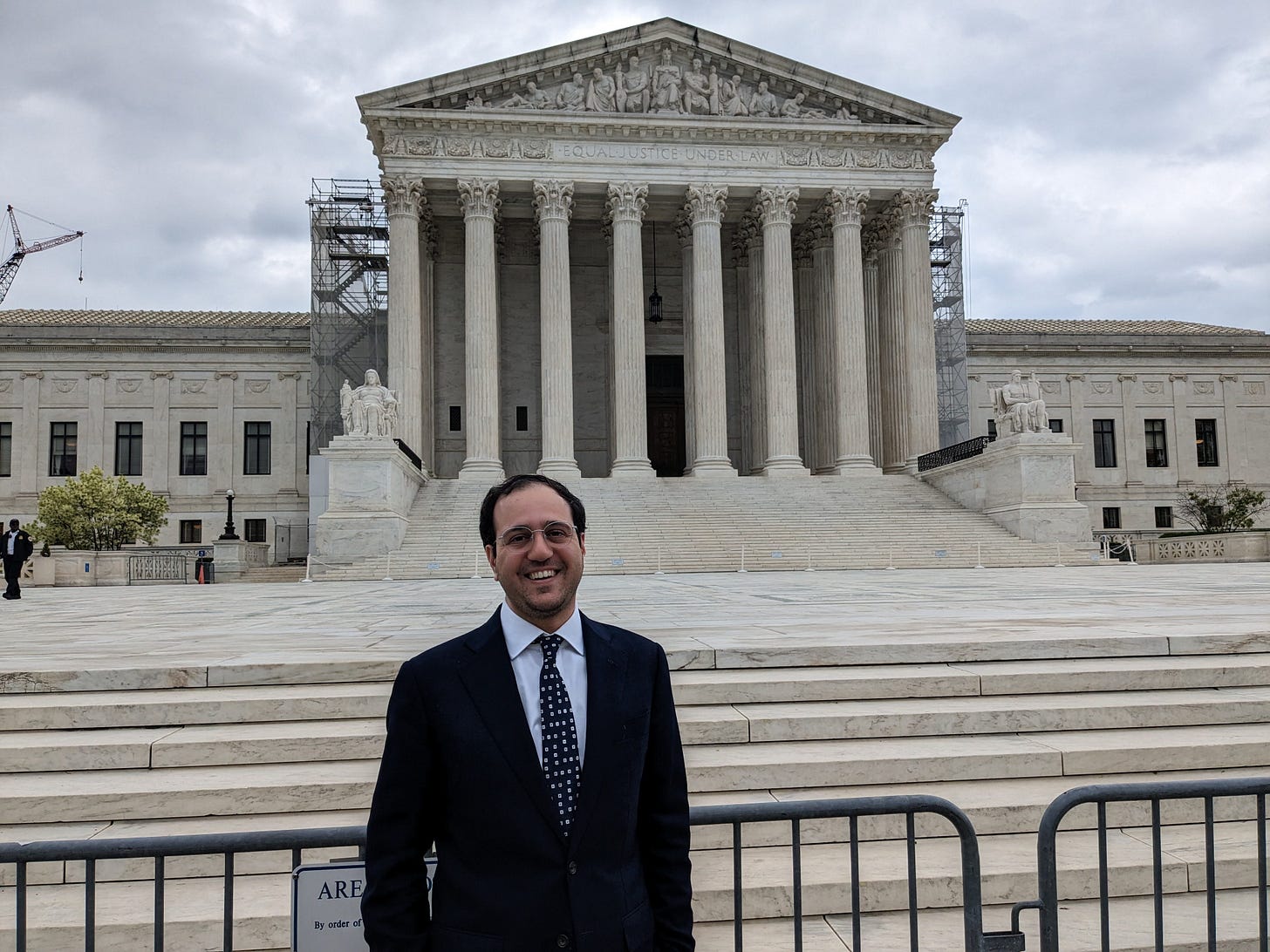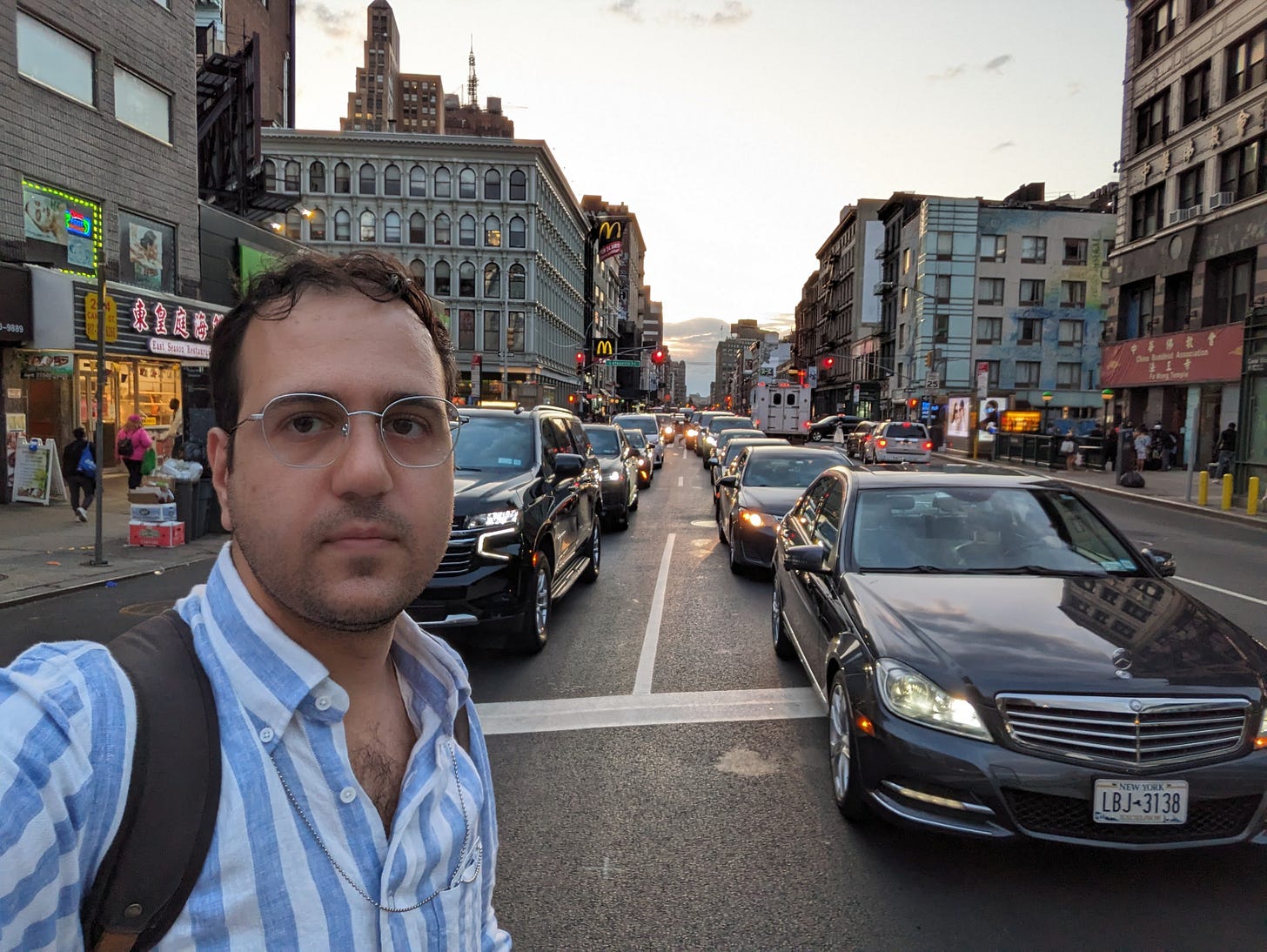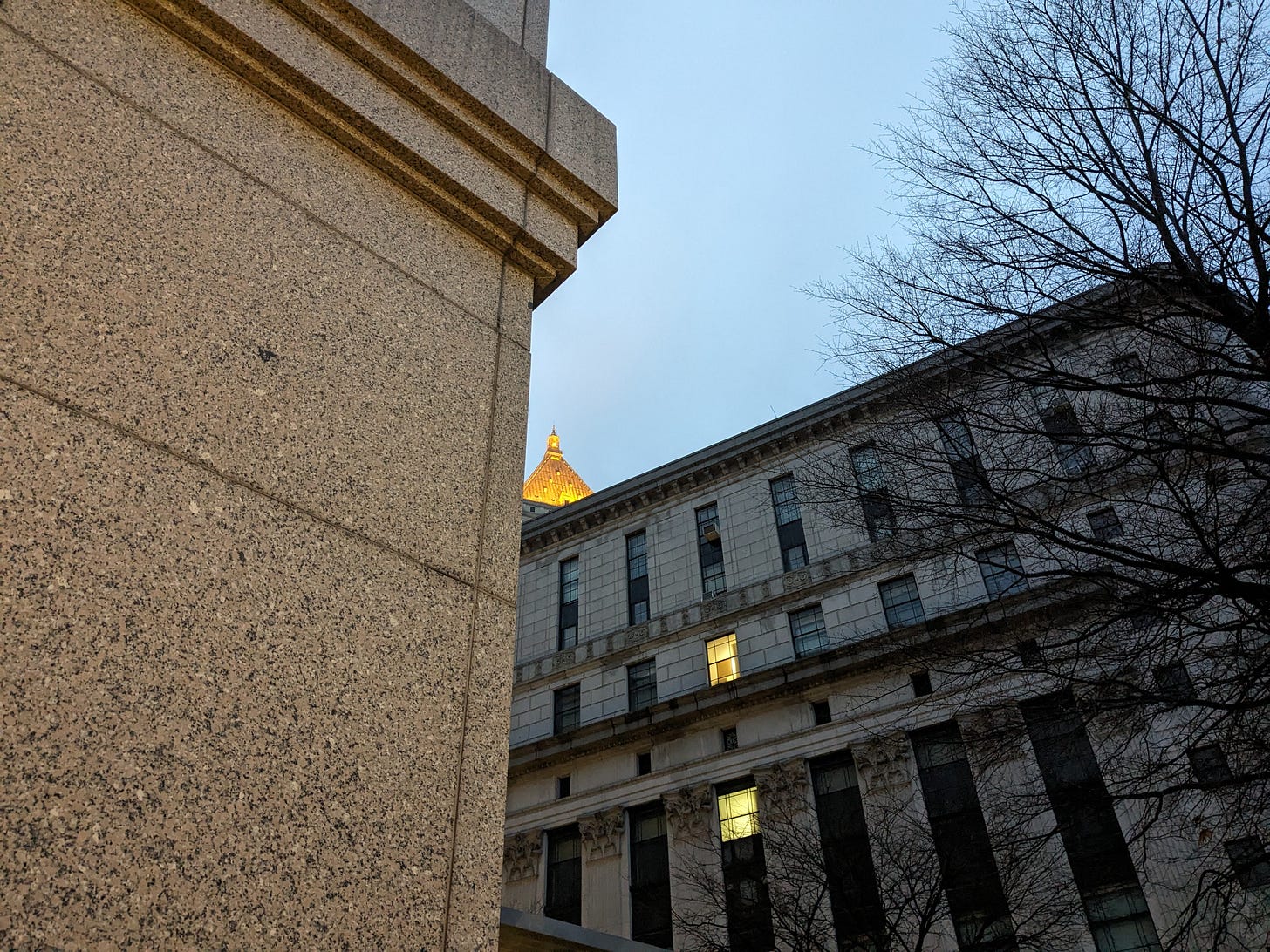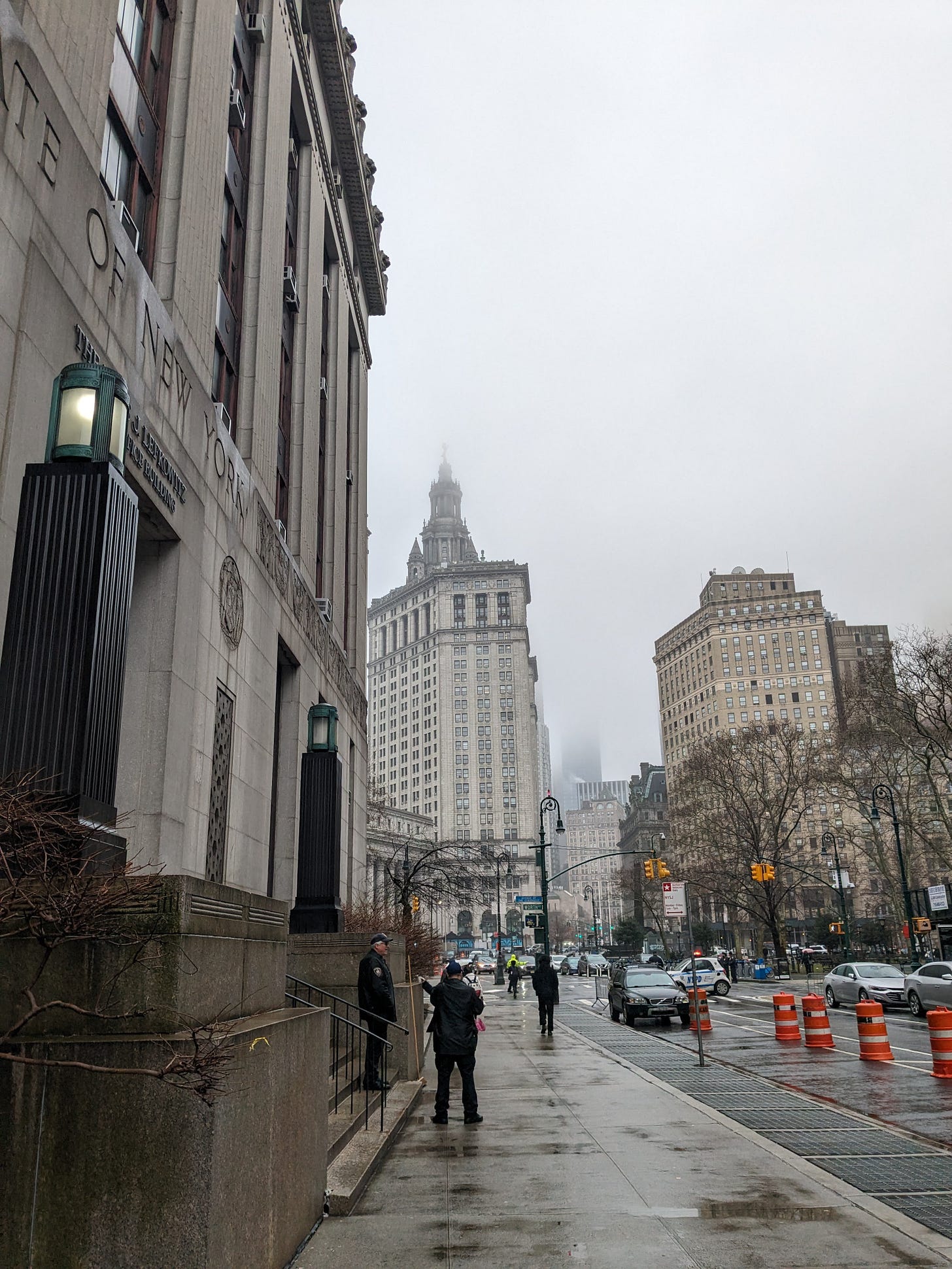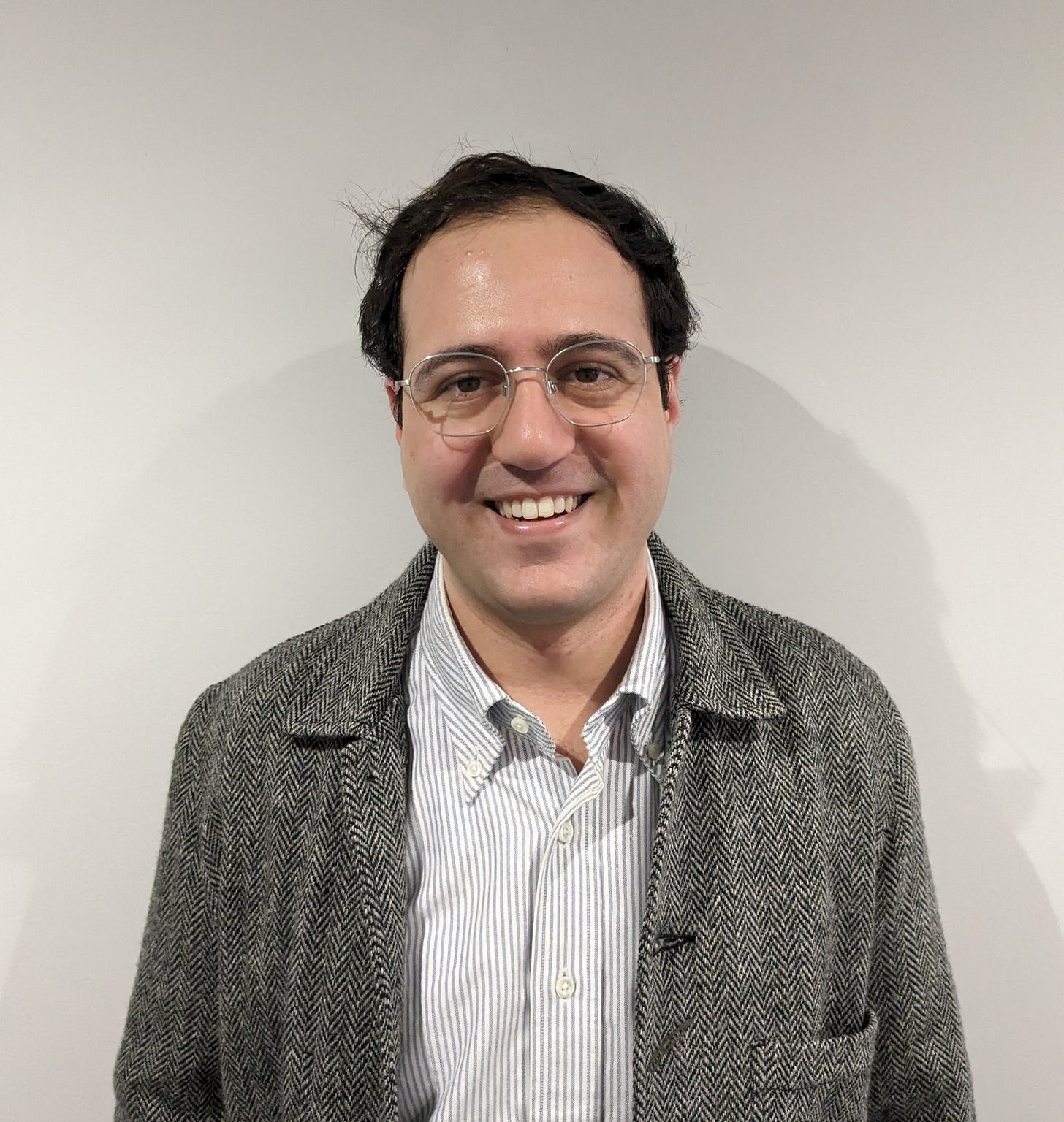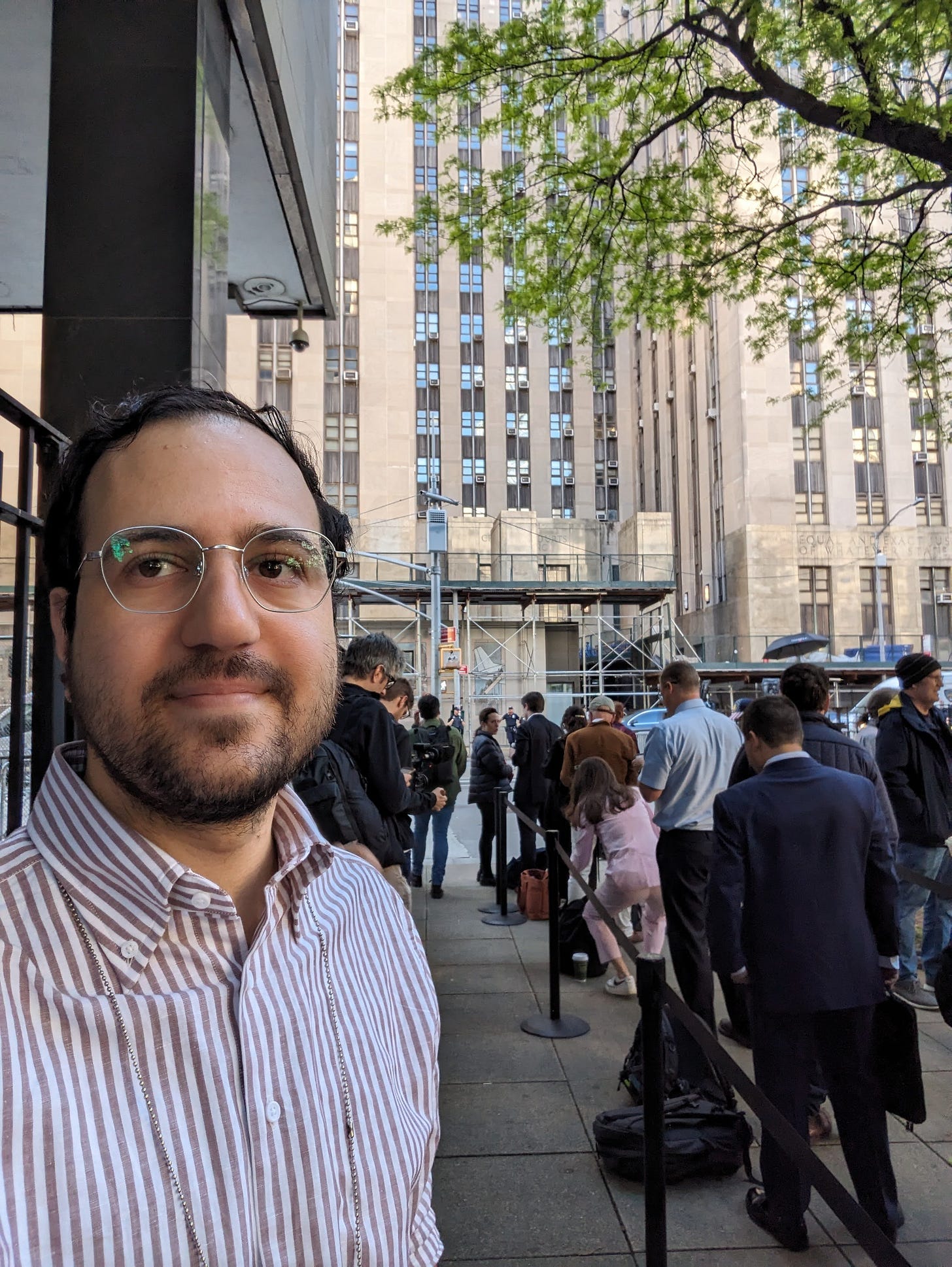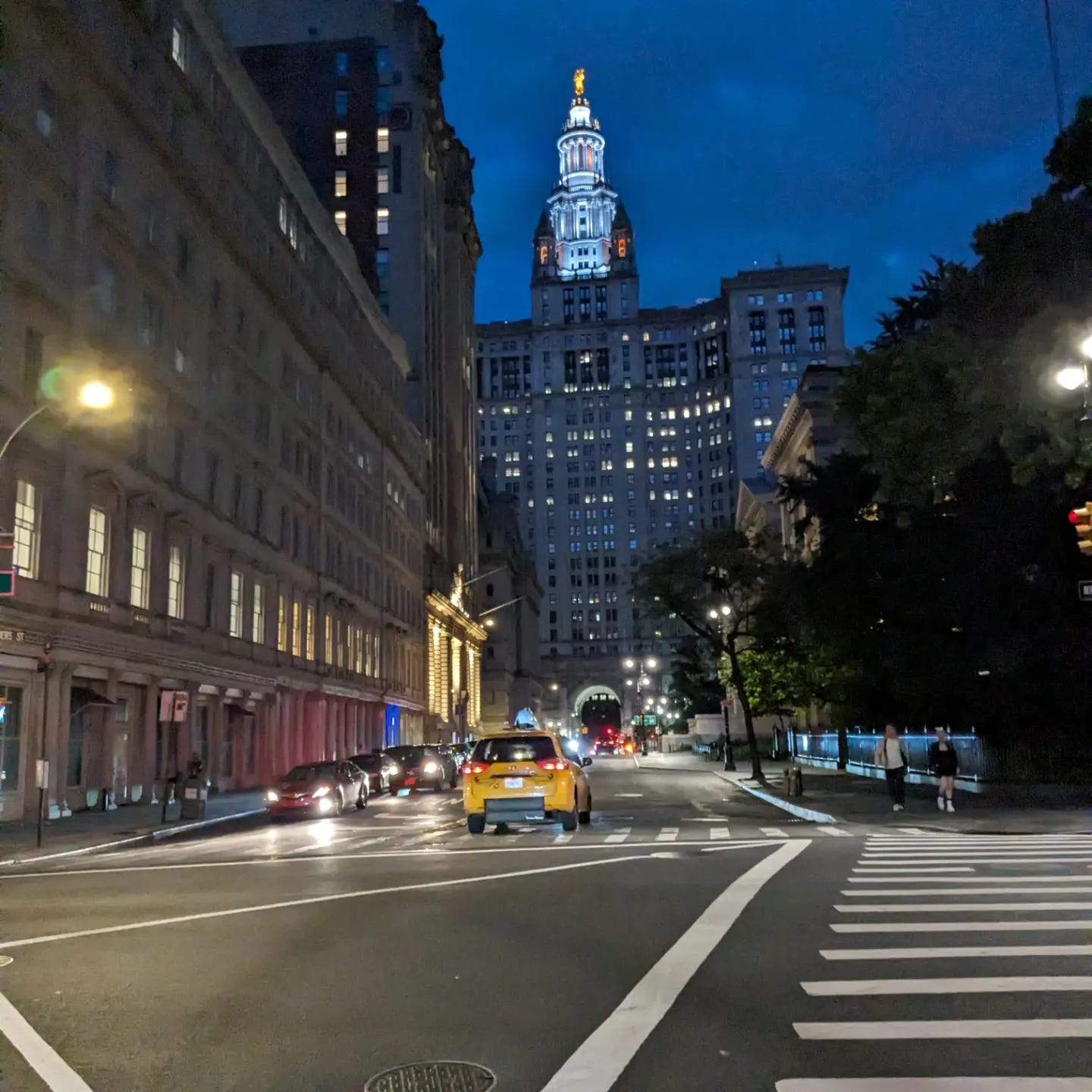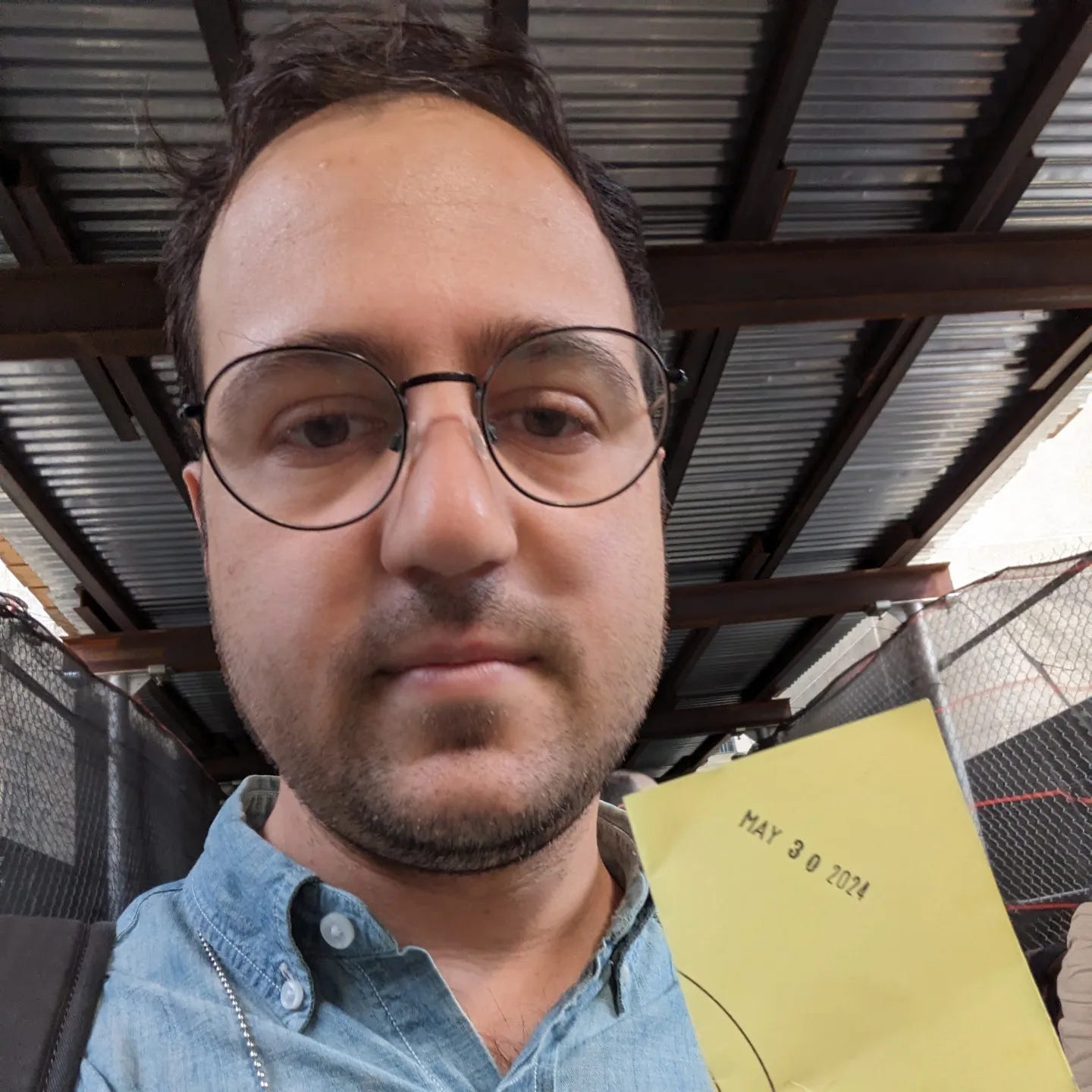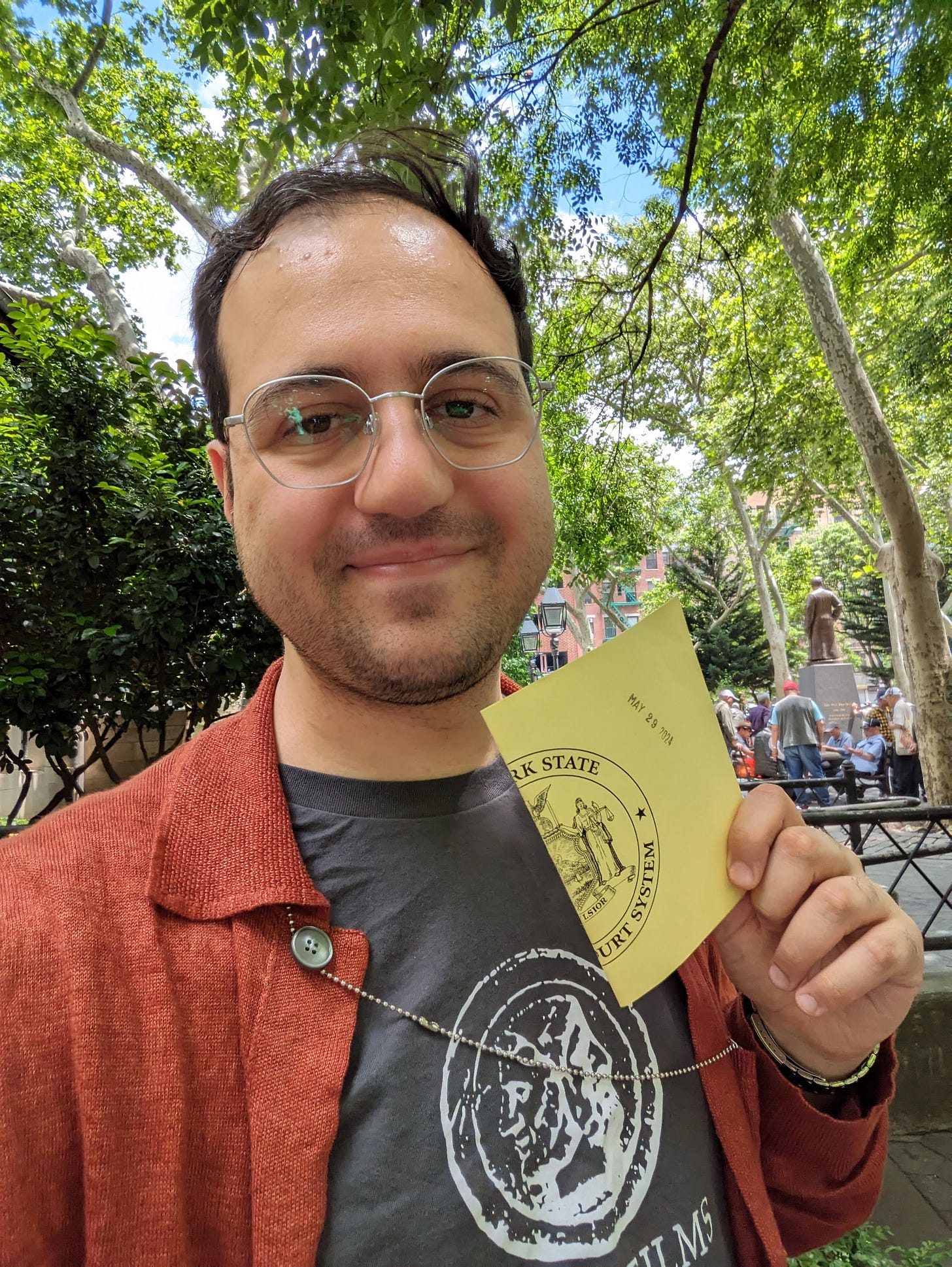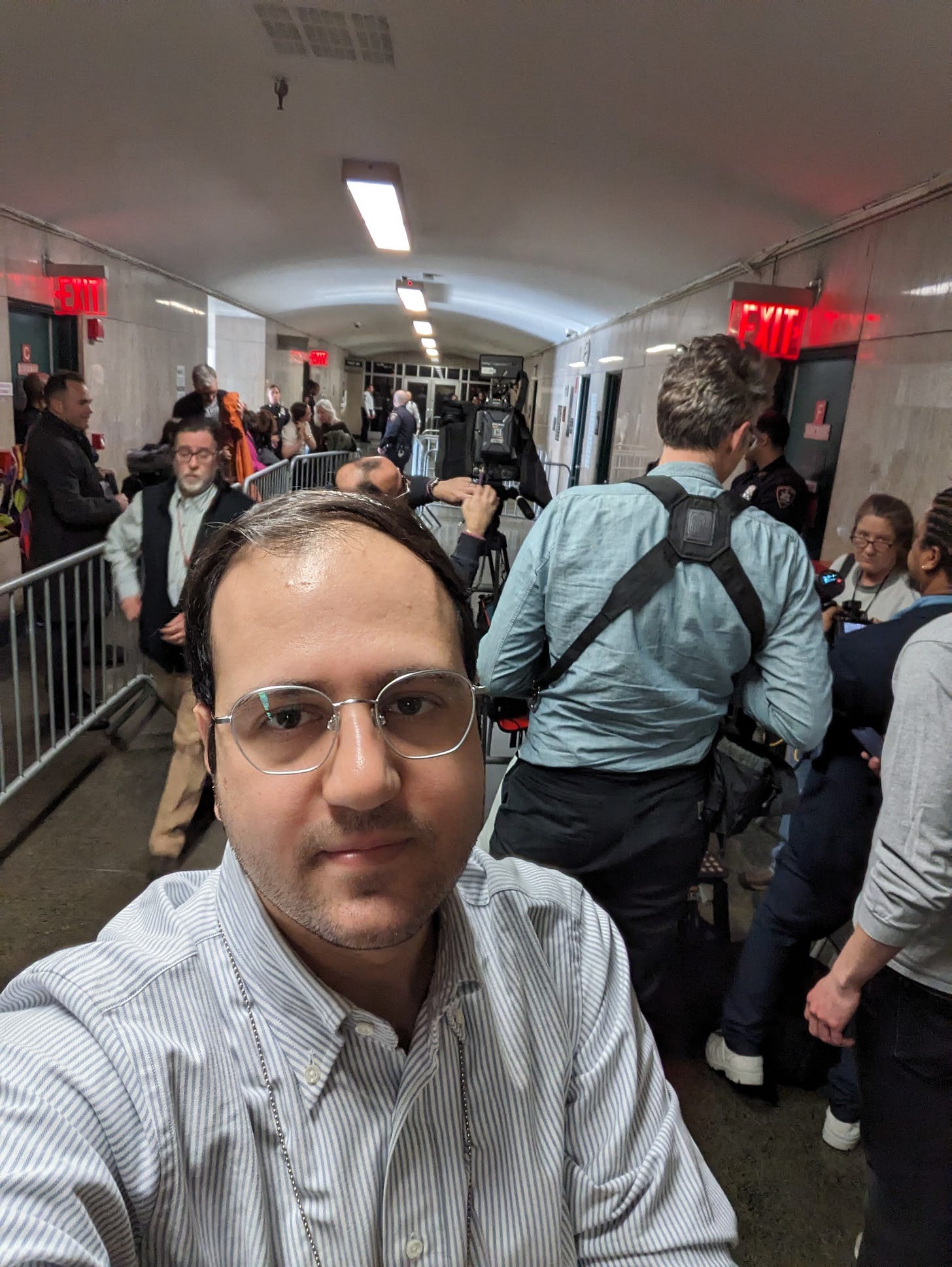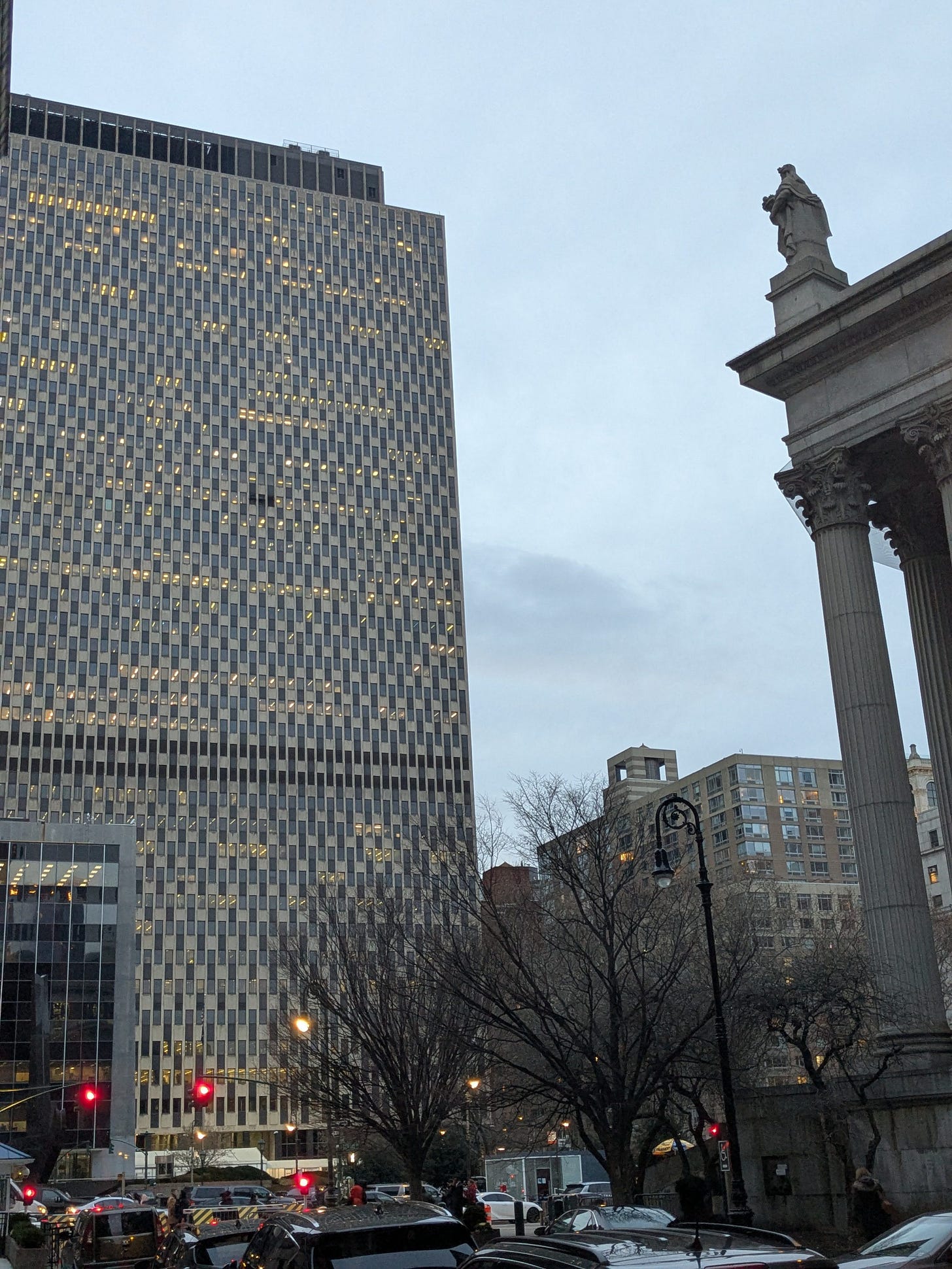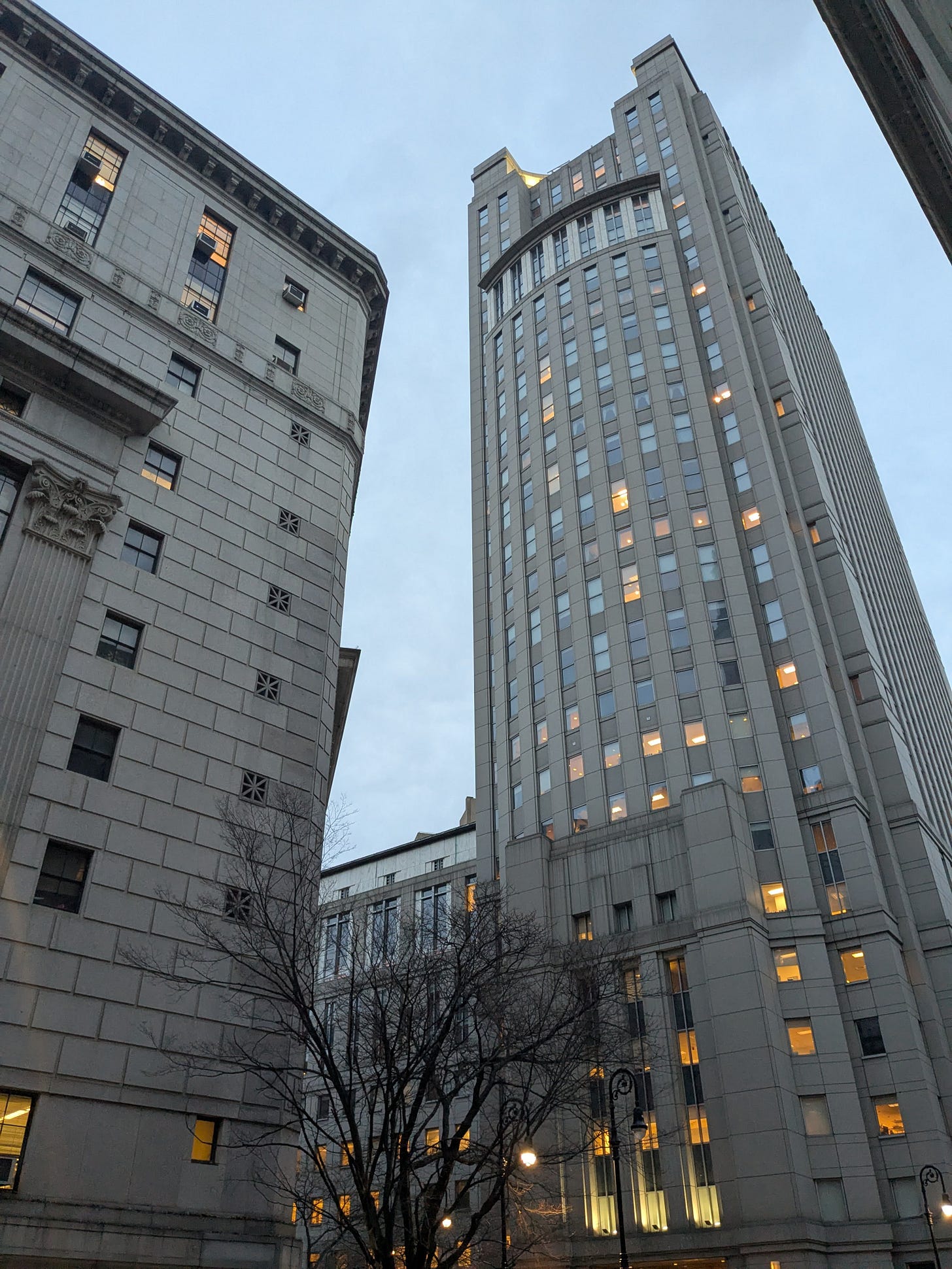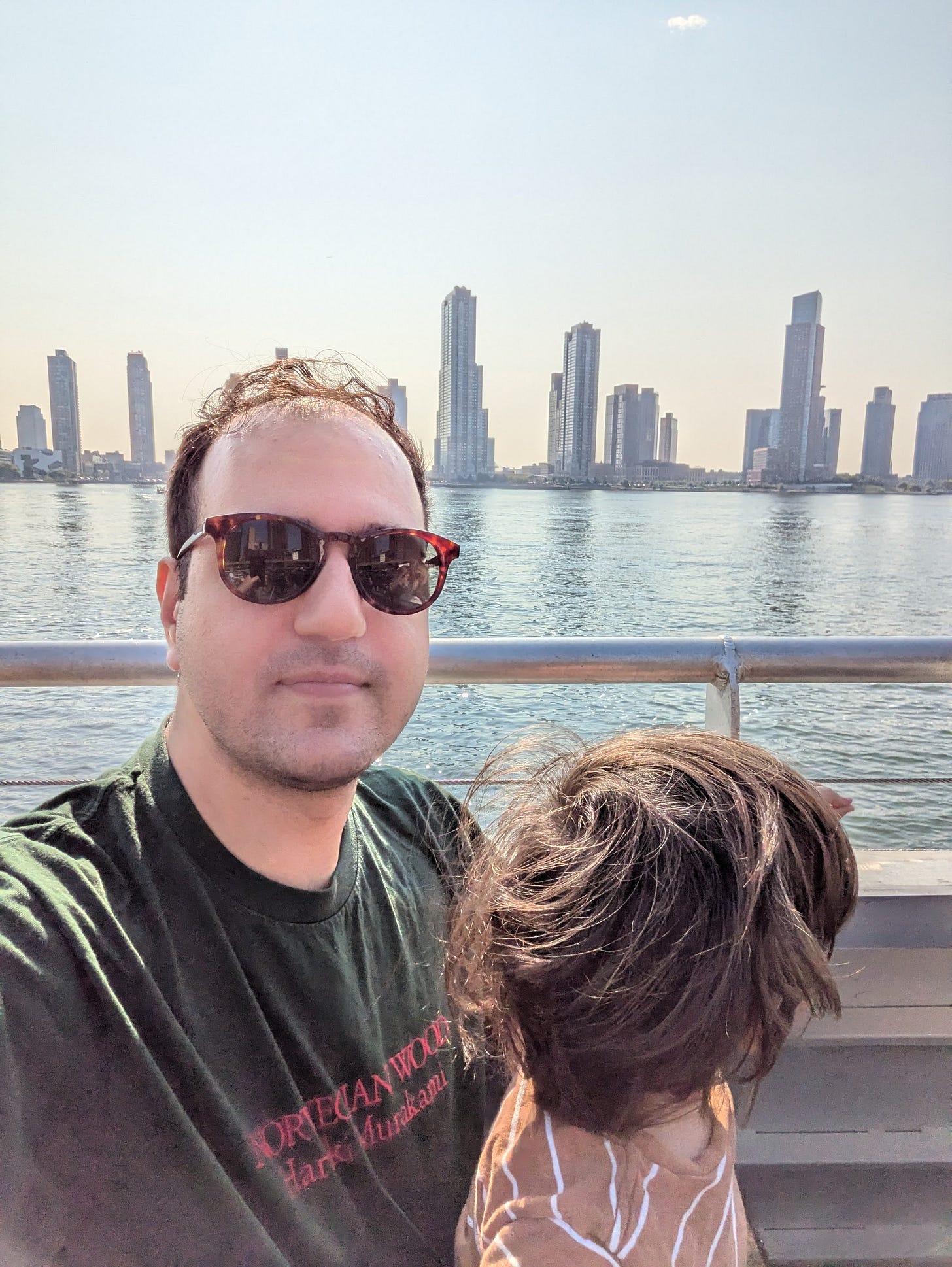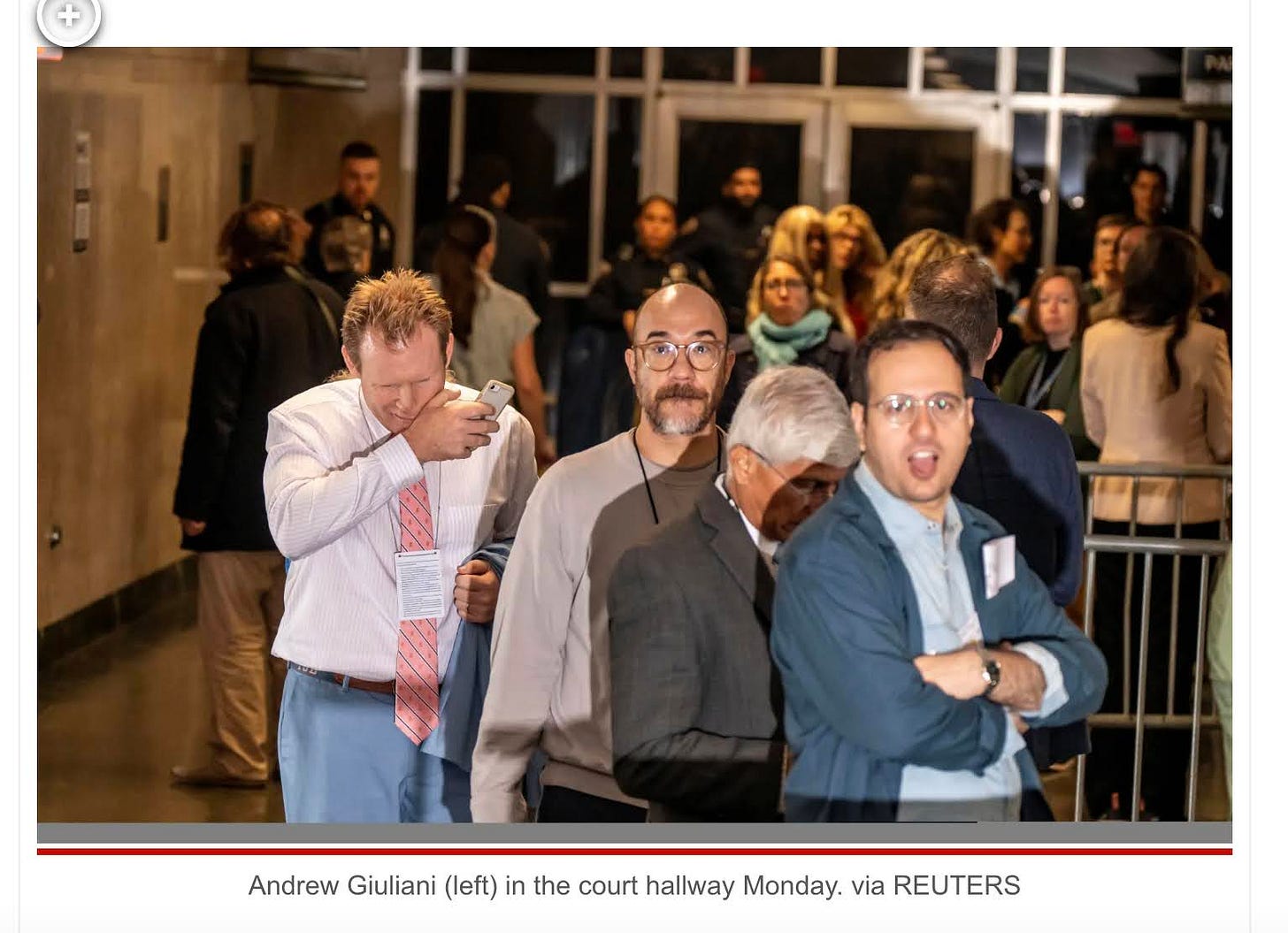
People call journalism the first draft of history. I think that’s a little simplistic. But what’s true is that journalists often get to be at a front-row seat to history.
It’s the great perk of the job. One of the things that makes it worth doing. You’re not quite in the thick of it. But you are on the edge, peering in.
I was blessed to have a lot of front-row seats this year. I mean that literally, in court. Here’s some stuff I worked on this past year that I’m proud of.
The year started with a bunch of unsealed court documents related to Jeffrey Epstein, a story that was poorly understood by most people. I’ve been following the story at Business Insider for years and have written dozens of articles about the civil case, so I was well-positioned to cover it. I explained the story of the “Does” — which was not actually the “Epstein list,” as so many people thought. The “Epstein client list,” in fact, is not something that actually exists.
After a careful look at the Epstein court documents, I found that Doe 174 was Donald Trump. Some of the unsealed documents also touched on what turned out to be a longtime beef between Bill Clinton and Vanity Fair, which I dug into. And, for my biggest scoop, I found out that Ghislaine Maxwell had a secret Tumblr account.
Between January 20, 2020, and July 1, 2024, the laws of the United States of America applied to Donald Trump as they do on any other person. He could no longer use the presidency as an excuse to delay lawsuits, and the Supreme Court had not yet granted him sweeping criminal immunity. I am fortunate to have covered his legal problems during this brief, historic, and exciting period of time. With the Supreme Court’s immunity ruling and Trump’s reclamation of the presidency, many of his gravest legal problems are already gone. Others may soon be snuffed out (Trump selected his lead criminal defense attorney to serve as second-in-command in the Justice Department). The most lasting legacy from this period may be the civil cases pursued by E. Jean Carroll, a woman who in her 70s broke her silence while Trump was president and accused him of sexual misconduct. Trump didn’t show up to the first trial, in 2023, where he was found liable for sexual abuse and defamation. He was present during the second, in January 2024, overlapping with the New Hampshire primary, for additional defamation damages. US District Judge Lewis Kaplan — who also presided over the first Carroll trial, as well as Sam Bankman-Fried’s trial I covered last year — had no patience for Trump acting out of line in court. He threatened to kick him out for heckling as Carroll testified. And although Trump wanted to deny the sexual abuse, Kaplan kept him on a tight leash. Trump walked out of the courtroom during Caroll’s lawyer Roberta Kaplan’s closing arguments. The jury was not impressed: They ordered Trump to pay Carroll $83 million.
Rather than use his own money on his legal problems, Trump paid his lawyers through donations made to his political actions comitees. I spent days poring through FEC filings and working with colleagues to reach out to law firms and figure out a graphics-filled breakdown of where the $52 million he spent in 2023 went. (Some of it went to a firm helping Ivanka Trump with her legal problems.)
Back in March, while most reporters forgot the case existed, I had a scoopy story about Trump’s lawsuit against the Pulitzer Prize board. His lawyers deposed a bunch of prominent journalists and tried to find the identities of mysterious “consultants” who reviewed The New York Times’s and Washington Post’s coverage of Trump’s links with Russia. The Pulitzer board, which operates out of Columbia University, still hasn’t explained why that information is such a big secret. One striking thing about the deposition transcripts: Trump’s lawyer noting “the achievement of several people that we've deposed that have not gone to J-school.”

The big Trump trial was, of course, for the Manhattan district attorney’s criminal case against Trump for falsifying business documents in order to cover up hush-money payments to Stormy Daniels so that he could deprive the American public from knowing about it ahead of the 2016 election. I covered the trial and its many pretrial hearings and motions with the formidable Laura Italiano, a legendary New York City courts correspondent who I am lucky to count among my many talented colleagues. Covering the trial meant that, for weeks, I had to get up really early to get a good spot in line and did not really have a chance to shave — something I was reminded of as I look back at photos from the time. I was a member of the hallway pool rotation, shouting questions at Trump, who occasionally answered them after his monologues about being treated unfairly. For a person known for his lack of impulse control, he was disciplined, confident, and on message every time. I will never forget the glimpse of defeat and fear I saw in his eyes as he left the hallway following the jury verdict, found guilty on all 34 counts. I wrote too many stories about the case to list them all here. But among the stories I’m proud of: Months before Justin Baldoni and Blake Lively, the Trump trial’s testimony laid bare some of the machinations of how a corner of the celebrity PR and lawyer world operated. Much of the testimony concerned the dry recitation of how checks were handled between the Trump Organization and the White House, and I was heartened that readers were so interested in our coverage of those mechanics. The Stormy Daniels testimony was something to behold. Always check the transcripts. I took a close look at Trump’s “multitasking” defense, which prosecutors carefully dismantled. We were sure to write stories that reminded us how fundamentally seedy and weird so many aspects of the case were. For much of the trial, Trump’s eyes were closed — something that, because the trial video was not streamed, is something much of the world will never see. Trump’s brief defense case blew up spectacularly with Robert Costello. Following the trial, I had a story about how one of the prosecutors’ most explosive claims in opening arguments — that Melania Trump was pregnant during one of her husband’s affairs — simply didn’t add up.
The trial was off on Wednesdays, which is when the judge, Juan Merchan, oversees Manhattan’s mental health court. It was a stark contrast. In the same courtroom where the past and future president of the United States was engaged in an operatic battle where his former lieutenants, friends, and alleged lover testified against him, in the very same chair sat defendants who had pleaded guilty to their crimes and were trying (and sometimes, painfully, failing) to get their lives back on track.
Trump had so many legal problems in 2024 that they not infrequently crashed into each other. He got a crucial New York appellate court decision knocking down his required bond for his civil fraud trial loss at the same time he was in court for a pretrial hearing of his criminal case. During the criminal trial, the US Supreme Court heard oral argument over whether presidents should have immunity from criminal prosecution. It was during Pesach. I left my parents’ home in the wee hours of the morning after a back-to-back yom tov and shabbat to travel to DC and cover the arguments in person. The immunity case had all sorts of second-order effects, like whether Mark Meadows has legal exposure and whether the Manhattan criminal trial will be tossed over the majority decision that forbade “official acts” even being used for testimony, an issue that is still being sorted out.
Just before the Trump trial, Sam Bankman-Fried was sentenced to 25 years in prison. The pre-sentencing filings deepened the image of a young mogul who was both duplicitous and naive. As with the trial, I left wondering why any of this happened, why lives were derailed for something so pointless. His parents didn’t hide their sheer devastation in court.
Judges often describe sentencing as the hardest thing they do. I don’t blame them. Depending on how you do the math, FTX’s customers didn’t lose any money. Judge Kaplan had no patience for that line of argument and banned it from the trial — an issue that is the basis for SBF’s appeal. But even if the jury didn’t get to hear the mathematical breakdown, it was interesting to examine whether Kaplan would take it into account in sentencing. In addition to that — should Bankman-Fried’s autism diagnosis affect things? In the end, SBF couldn’t catch a break.
The most fascinating subplot in SBF’s legal saga is that of Ryan Salame, the lieutenant who didn’t catch a plea deal. After Kaplan sentenced him, to 7.5 years in prison, he returned to his great love: posting. He also tried and failed to prevent prosecutors from bringing charges against his romantic partner, which resulted in an astonishing hearing where Kaplan dragged him to court for questioning.
SBF got 25 years, but Caroline Ellison got only two. Her sentencing hearing was an event.
The Trump trial was followed almost immediately by Hunter Biden’s gun trial, which he was doomed to lose.
At the end of 2024, Rudy Giuliani was saddled with a devastating trial loss after defaming two Georgia election workers. The twists and turns of his attempts to avoid paying them became a crash course in personal bankruptcy law. One recommendation: If you ever find yourself in bankruptcy court, let your lawyers do the talking.
Giuliani also makes a cameo in my lil historical research piece about the aftermath of Ronald Reagan’s shooting. He’s like the Forrest Gump of criminal law.
I spent years trying to get Steve Bannon to talk to me about his relationship with Jeffrey Epstein in the last days of the pedophile’s life:
Bannon, who frequently speaks to journalists, did not respond to numerous voicemails, emails, and text messages from Business Insider over the course of several years requesting comment about his relationship with Epstein.
He did not respond to an additional request for comment in a letter mailed to him on July 9 in the federal prison in Danbury, Connecticut, where he is incarcerated.
Alexandra Preate, a spokesperson for Bannon, told BI in December 2021 that the documentary about Epstein would be screened "probably around Labor Day." The date came and went. Preate has not responded to follow-up queries in the two years since, including a request for comment sent Tuesday.
Hopefully he’ll get back to me soon! I pieced together as much as I could about their time together without his help.
The Miami Herald beat me to this story by like 15 minutes: Trump spent a weekend flying around America on a plane previously owned by Jeffrey Epstein.
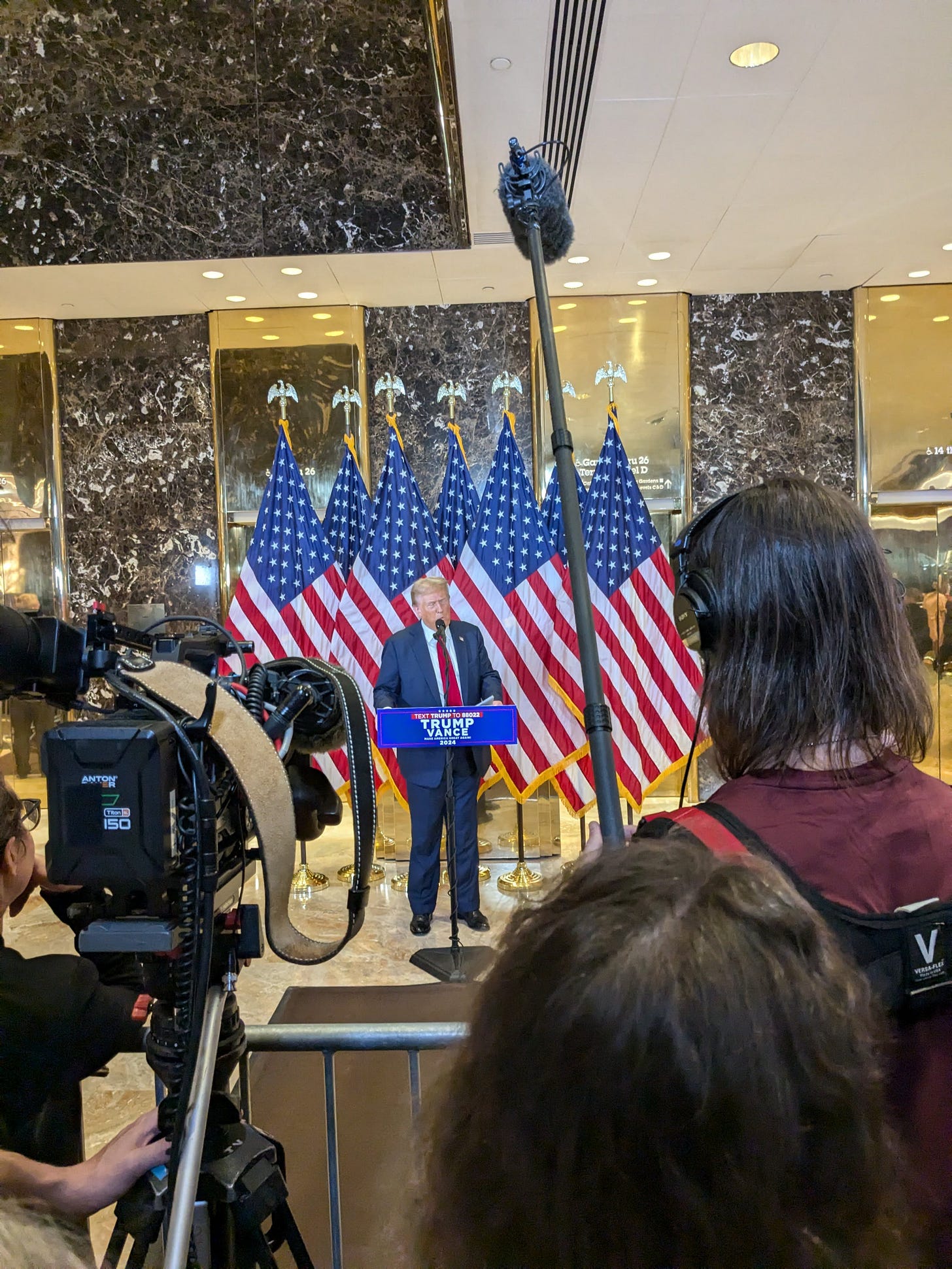
I stitched together the court filings describing Matthew Perry’s last days.
I worked really hard on perfecting this headline so I’ll let it speak for itself: RFK Jr. stuck his hand in the Central Park bear's mouth. Necropsy shows he may have been knuckle-deep in her leaked brain.
After tech executive Mike Lynch died on his yacht, I unfolded the long, complicated 12-year legal battle he won just before his death.
Now that Trump won the presidency, hopefully the long-delayed J6 Award Gala will finally happen. Hopefully the group will be honest about their RIAA sales.
I didn’t spend a lot of time this year writing about Anna Sorokin, but I am fascinated by the defamation lawsuit Rachel Williams filed against Netflix over her portrayal in “Inventing Anna.” In a complicated dispute I dug into, the lawsuit’s discovery process is colliding with journalistic source protections.
I spent a lot of time looking through court documents to confirm Google paid a $2,289,751 check to guarantee a bench trial in its big adtech monopoly case.
The back-to-back Diddy and Eric Adams indictments were an all-consuming whirlwind. Court is exciting!
Right before I went on parental leave, I spent weeks and weeks reviewing filings for a bunch of copyright lawsuits from publishers against AI companies. Some are more sophisticated, and are progressing faster, than others, and will end up setting the caselaw for the rest. Among those, The New York Times’s lawsuit against OpenAI and Microsoft is arguably at the head of the pack. It will set the precedents for not just journalism, but possibly all creative works.
Right after I returned from parental leave, I jumped right into the Luigi Mangione news. I’m very proud of this piece I co-bylined charting his path from precocious teenager to alleged killer.




